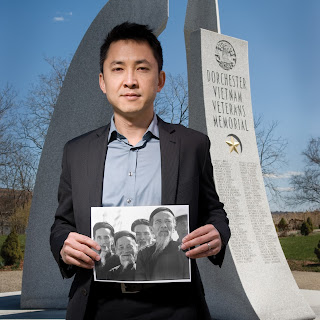Mei Fong and the far-reaching effects of China's one child policy
In preparation for her talk, I read One Child over winter break. I highly recommend that everyone read her book—even as a Chinese-American who has lived in China for 9 months, I learned so much about China, especially rural China, from One Child. The policy has affected so many aspects of Chinese culture that we do not normally consider when thinking about China as a whole.
Reading One Child also influenced me to change my capstone project's theme from environmental policy to the one child policy. I taught two World Cultures Pacific Rim classes the week before Fong came to Poly so that the students in these classes could better understand the context of her talk. Even though it was a lot of work to have many different strategies of engaging the students in the discussions, seeing the students have insightful conversations about the differences between Chinese culture and other cultures they learned in class made the effort completely worth it.
Before her talk, I joined a dinner with Fong and the group of students who will travel to China over spring break. We all ate as students asked her questions about Chinese culture. I never really realized many of the differences that she discussed between American and Chinese culture until she mentioned them, so that was an interesting experience.
Then came the presentation. Fong first talked about China's overall population's age demographics and how the population is, as a whole, growing older. Other topics she covered included shidu parents (parents who lost their child and, as a result, get pushed to the bottom of the social ladder), population police, the military scientists behind the planning of the one child policy (because the intellectuals were prosecuted or scared off by the Cultural Revolution), the effectiveness of two-child zones, the pressures put on only children to support their parents, bachelor villages (and runaway brides), and adoption. She also talked about her own story through motherhood, paralleling her experiences with the stories she discovered during her investigations in China. Even though I had already read the book, Fong still gave me new insight into issues I previously overlooked. As I learn more about China's efforts at population control, it becomes clear that historical context is so crucial for understanding China's modern society.
Preparing for this GIP event has had a huge effect on my experience as a GIP student and how I see Chinese culture. Not only did reading One Child influence me to surround my GIP classes around the policy, but it also forced me, someone who has only been exposed to urban Chinese society, to consider my urban bias or ignorance on national issues. Many of China's issues occurred in rural areas because of the CCP's (and the world's) neglect of these areas in terms of press, healthcare, economic support, and more.
I'd like to thank Mei Fong for her invaluable insight on these issues. It's journalists like her that help readers like me better understand other cultures and societies.














